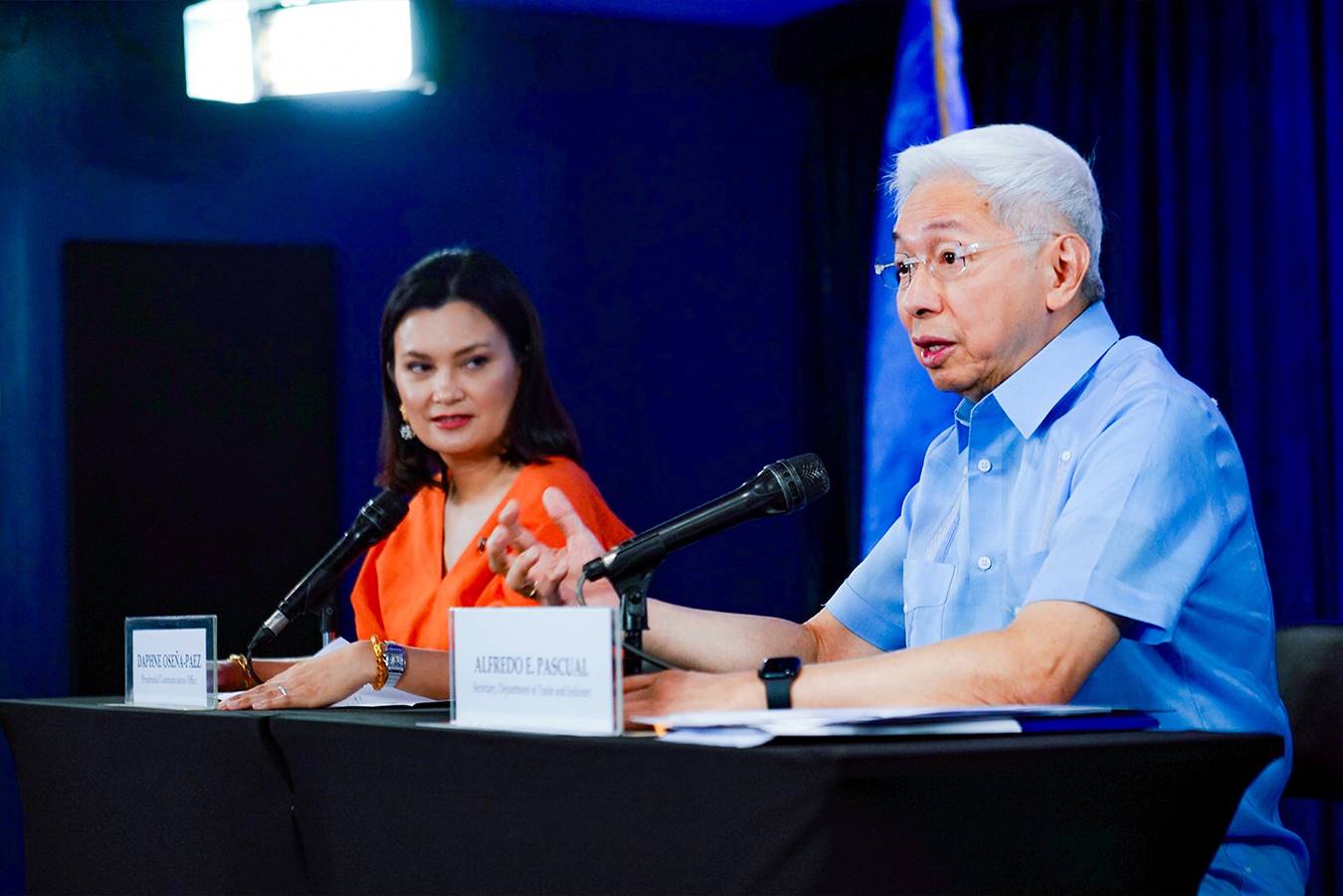
Some European companies have expressed confidence in the Philippines as an investment hub in Southeast Asia, according to Department of Trade and Industry (DTI) Secretary Alfredo Pascual.
In a press briefing in Malacañang on Wednesday, Secretary Pascual said that the European companies are “seeing the light” when he discussed various business opportunities in the Philippines during the three-week European investment roadshow.
Secretary Pascual visited France, the United Kingdom, Belgium, the Netherlands and Germany for the three-week European investment roadshow of the Department of Trade and Industry (DTI).
“I kept on emphasizing, you want our labor, you might as well set up your factory here so that our workers will not have to leave the country, but do their work here for your companies and serve your export market, as well as cater to the Philippine domestic market for those that are producing consumer goods,” Secretary Pascual said.
“They are seeing the light, and it will mean also lower cost of operation. Because if you bring a Filipino worker, Filipino engineer, for example, to Germany, they will have to pay a Filipino engineer salary almost equivalent to what they are paying a German engineer. Whereas here, with the lower cost of living here, the wages can be lower,” he added.
Secretary Pascual also stood firm that it is no longer difficult to encourage investors to invest in the Philippines due to the reforms that the government have been undertaken recently such as the amendments to the Public Service Act, to the Foreign Investment Act, and to the Retail, Trade Liberalization Law.
He also emphasized that the passage of the CREATE Act, the relaxation of ownership restrictions for renewable energies and the openness of the Philippines to engage in other countries are also the factors that boosted foreign investors to invest in the country.
The European investment roadshow was conducted to gather investment leads for the priority sectors in the Philippines such as manufacturing, high-value services, renewable energy, and research and development.
Secretary Pascual said that they were able to generate P73 billion investment leads, potentially generating over 4,300 jobs.
“It became very clear that their main attraction to the Philippines includes the strategic location of our country; the large population that we have which translates to a good market for them; and, the young, talented and skilled workforce that we have in the country – not to speak of our natural resources.,” Pascual said.
Secretary Pascual also emphasized that they are seeking to foster the strategic partnership and collaboration of the Philippine government with the European government as part of the government’s efforts to pursue the country’s sustainable growth and development objectives.
“We sought to foster strategic partnerships and collaboration with the European government, particularly the EU, as well as businesses in the region … We recognize their interest in investing in the Philippines, and the support they can provide as we pursue our sustainable growth and development objectives,” Trade Secretary Alfredo Pascual said.
Secretary Pascual said that they also met with EU Commission President Ursula von der Leyen along with other officials and discussed “two crucial agenda items” such as the renewal of the GSP+ for the Philippines and the resumption of talks on a free trade agreement (FTA) between the EU and the Philippines.
“The two items I mentioned are critical because many of our exporters to Europe depend on the tariff concessions given to us under the GSP+. And it is important to commence or recommend discussions on the FTA because our eligibility with respect to the GSP+ will not be there anymore the moment we become an upper-middle income country,” Pascual said.
“Right now, we are classified as a lower-income country. Our expectation based our growth trajectory, we will become an upper-middle income country within three years or so – that means in 2025 – and by that time, we will become no longer eligible for coverage under the GSP+,” he added.
With this standing, Pascual highlighted the importance to shift to “a more permanent platform for trade” or the free trade agreement to disrupt the preferential trade arrangements available to exporters of the Philippines.
He added that they emphasized during their meetings the significant policy reforms that the Philippine government has been undertaking to create an enabling, friendly business environment for foreign investments in the country. PND

